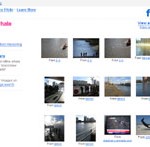Lloyd Shepherd from the Guardian Unlimited team wrote an interesting piece the other day about editing by audience consensus, in the context of Digg. For those who don’t know it, Digg is ‘a technology news website’ where ‘rather than allow an editor to decide which stories go on the homepage, the users do’. All very zeitgeist-y. But could a mass-appeal site like the Guardian really hand over control of its homepage to its users?
One site out there is testing the idea, so we’ll find out soon enough. I was the lucky recipient this morning of a beta invite to something called Newsvine, ‘where anyone can read, write and influence the news’. And at first glance, it’s a fascinating idea.
The core of the site, for now anyway, is the usual supply of AP newswire copy. But you can vote to make a story more prominent on the homepage, like Digg. You can add comments to the bottom of stories, like on a blog. You can get a personal ‘column’ (ie. blog) which forms part of the newspaper. There’s a del.icio.us-style concept of ‘seeding’, where you can contribute links to external news sources. Plus, it goes without saying, all the (increasingly) usual RSS and tagging options. And probably a few other things I haven’t spotted yet.
Like its evolutionary predecessor Slashdot, I don’t really see Digg having the mass appeal to take it beyond what Geoffrey Moore’s book Crossing The Chasm calls the ‘technology enthusiasts’ crowd. But Newsvine shows how the same idea could be applied to more generalist-friendly contexts. Like the Guardian?
